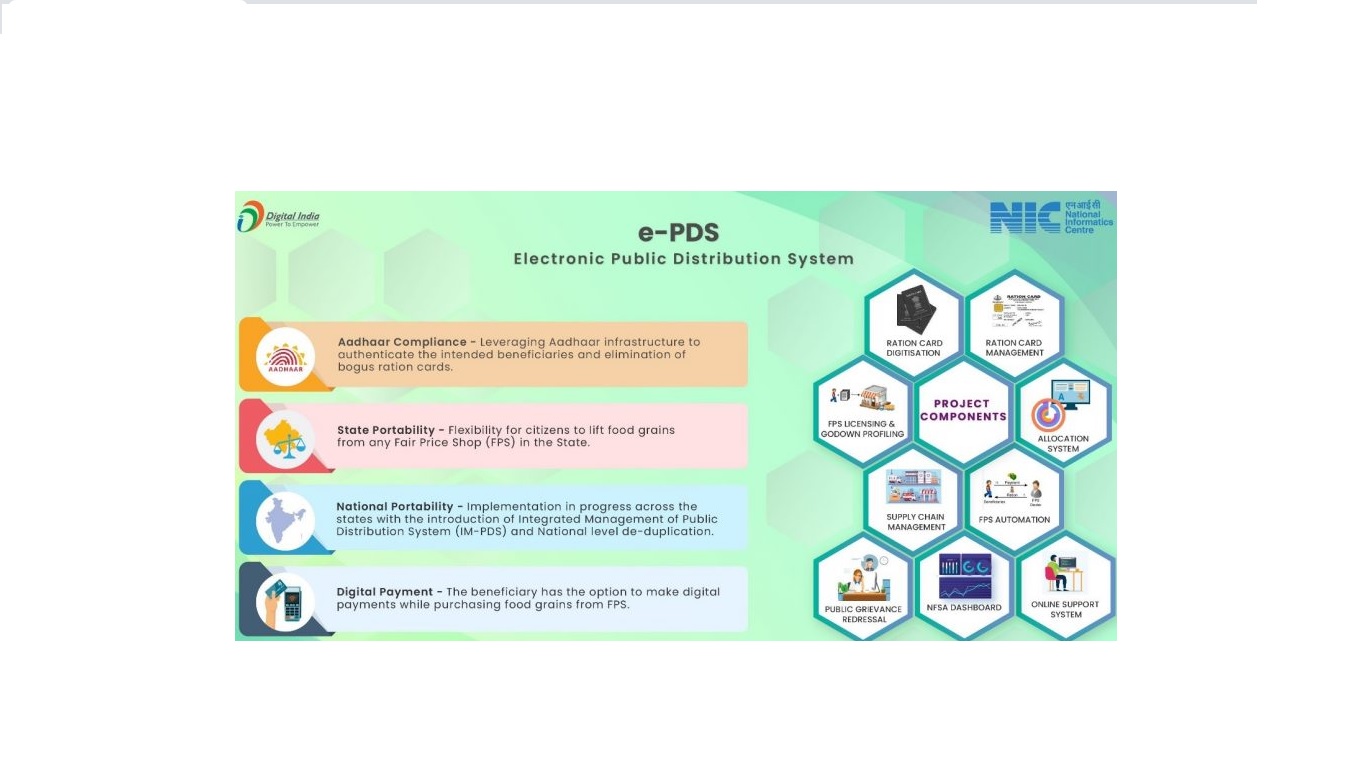
Tags: Economy WTO WTO Public Stockholding MSP Economic Growth Masala Bond Environmental Performance Index Forecast of Economic Growth Functions of the Finance Commission
The PDS or, the Public Distribution System aims at a targeted, fast and cost-effective delivery of foodg-grains in India. PDS or, the Public delivery mechanism (PDS) has emerged as a mechanism of scarcity management through the delivery of food grains at low cost. PDS has been a significant aspect of the government's policy for managing the country's food economy over the years. It is supplemental in nature and is not meant to provide the full need for any of the commodities given under it to a home or a segment of society. The PDS is managed jointly by the Central and State Governments.

The Food Corporation of India (FCI) has acquired responsibility for the acquisition, storage, transportation, and bulk allotment of food grains to state governments. The operational role includes allocation within the state, identification of eligible families, issuance of Ration Cards, and oversight of the operation of Fair Price Shops (FPSs), among other things. Currently, commodities including as wheat, rice, sugar, and paraffin are allotted to states/UTs for distribution under the PDS. Some states/UTs additionally distribute other mass-consumption commodities through PDS Outlets, such as pulses, edible oils, iodized salt, spices, and so on. The project's objective is to secure food security for the country's population.